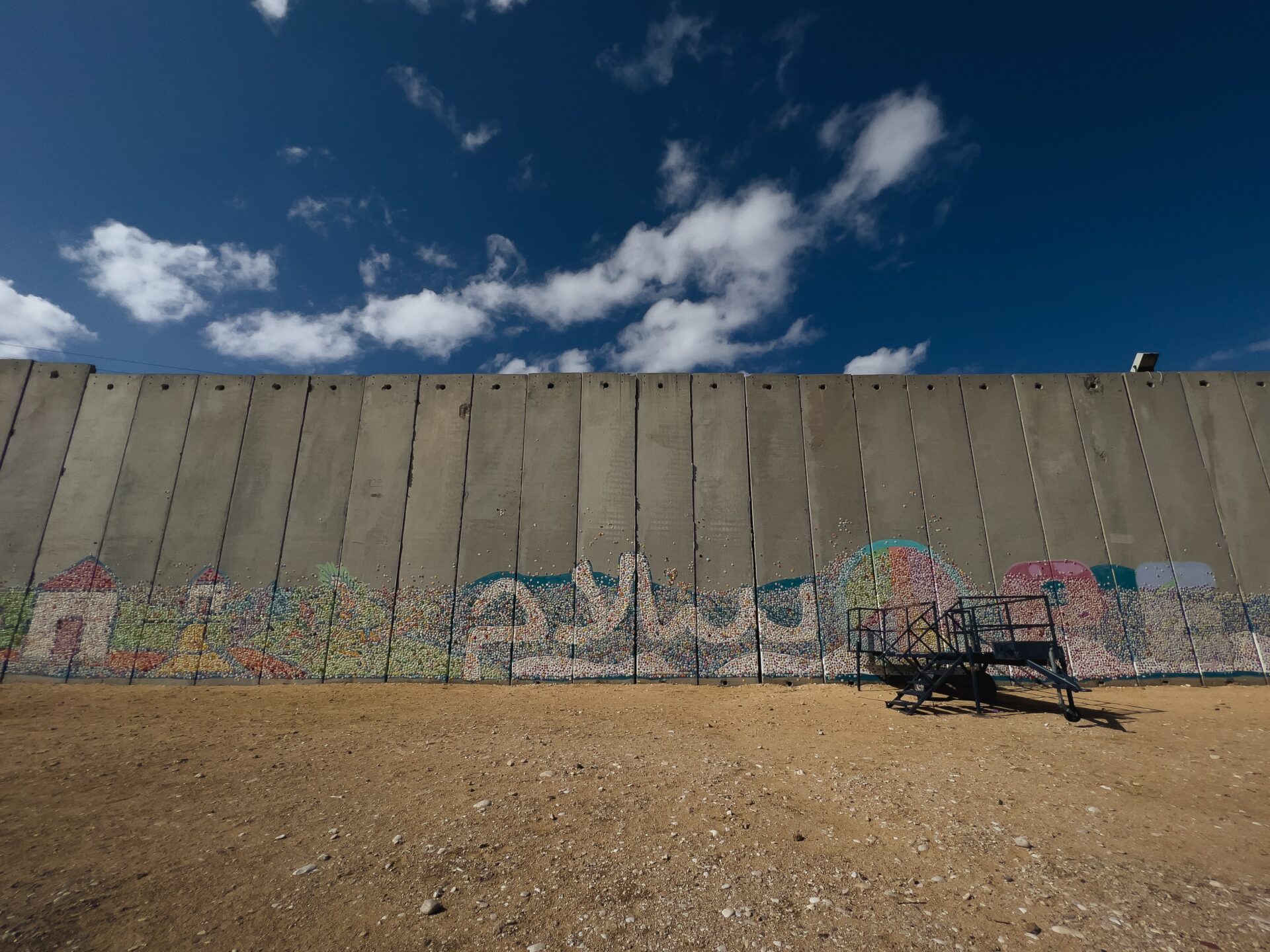
Netiv HaAsara, near the Erez Crossing with the Gaza Strip.
Photo by Levi Meir Clancy on Unsplash
Bearing witness to the suffering on both sides
October 30, 2023
As the death toll from Israeli airstrikes in Gaza has surpassed 5,000,[i] with half of those killed being children, those on the ground have deemed the situation “catastrophic.” Because this is a war between a state and a territory, Israel has shut off gas, water, and electricity to Gaza, an act that would be impossible if this were a war between two states. American Christians face a choice—will we look away, or will we reckon with the fact that despite their words expressing concern for civilians, our government’s actions are supporting and financing total war on the people of Gaza?
Without a doubt, the actions of Hamas are unbelievably cruel and must be condemned by all people of conscience. The atrocious murder of Israeli civilians deserves the starkest condemnation, but the truth of the matter is that Hamas and the Palestinian people ought not be conflated. An odious act by one party ought not produce a thirst for revenge and cruelty in the other. That is a lesson we learned all too well in the wake of the 9/11 terror attacks. Both Hamas’ acts of murderous terror and the Israeli blockade and ruthless killing of civilians are wrong for the same reason—they are the politics of death and destruction, and they are not in keeping with God’s plan for flourishing for the world.
To us, it seems like many Americans have empathized with Israeli suffering at the expense of Palestinian suffering. The shocking murder of civilians by Hamas naturally engenders sympathy and empathy in any feeling person, but that does not mean that we can afford to discount the suffering and grief of Palestinian civilians who are dying under Israeli bombs every day. Our love and God’s love is capacious enough to hold both, and we ought to commit to bearing witness to the suffering of both sides.
For us, it also feels important to acknowledge that this cycle of violence is perpetuated by the brutal occupation of Palestine by Israel, with one commentator calling Gaza an “a resource-starved and overpopulated open-air prison.” Without a cessation of the occupation, it seems unlikely that the cycle will end here. Rather, embarking on a crusade of revenge will only deepen divisions and make peace that much more unlikely.
As we sat in a Shabbat service in solidarity with our Jewish neighbors over the past week, we saw unbelievable pain and grief. We also witnessed the mourning of our Palestinian siblings at a vigil. As Christians, we must bear witness to such grief, but we must not make the mistake of only seeing one side’s pain.
In a recent interview, Justin Welby, the archbishop of Canterbury, recently declined to condemn Israel’s actions, stating that he “pointed the finger” at Hamas but when interrogated about Israel’s bombing of civilians, he said “Let’s not run to judgment and blame straight away.” That seems like the path most taken here in the United States. The idea that any act is permissible as retribution strikes us as unchristian.
Lest we think that these discussions are removed from the realities of our daily lives, we recently learned in Illinois of the heinous killing of a six-year-old Palestinian American boy by a Polish American man in an act of Islamophobic violence. The killer’s crime is believed to have been prompted by the unverified allegation of Hamas decapitating Israeli babies, a claim made viral on social media and by the U.S. president repeating it.
How we think of others matters, and if we come to see others as our enemies, then violence can occur. Antisemitic and Islamophobic violence are not in keeping with God’s dream for our present and future. One way to combat such violence is by refusing to conflate Jews with the actions of the Israeli government, while also refusing to conflate Hamas, Palestinians, and Muslims more broadly. Religious leaders like us must do the hard work of disentangling such assumptions.
As we sat in a Shabbat service in solidarity with our Jewish neighbors over the past week, we saw unbelievable pain and grief. We also witnessed the mourning of our Palestinian siblings at a vigil. As Christians, we must bear witness to such grief, but we must not make the mistake of only seeing one side’s pain. We were heartened to see Jeffrey Haggray’s recent letter which he reminds us that God values the lives of all equally. We must make sure that our Jewish and Muslim neighbors can worship without fear, an all-too-common experience for both groups.
What we must do as Christians is urge an immediate ceasefire. We must act to preserve life wherever we can. Our government has the power to bring about that ceasefire. Such work for peace might strike some as foolish and unlikely, but with the Prince of Peace on our side, such foolishness might just work. We are not guaranteed success, but that makes how we act in the present moment even more important.
Rev. Dr. Anna Piela is senior writer, American Baptist Home Mission Societies. Rev. Dr. Michael Woolf is senior minister, Lake Street Church of Evanston, Illinois. They also serve as co-associate regional ministers for White and Multicultural Churches, ABC Metro Chicago.
The views expressed are those of the author and not necessarily those of American Baptist Home Mission Societies.


